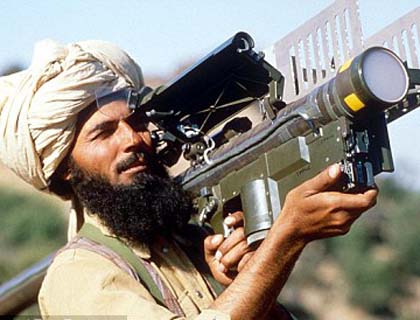KABUL - Afghanistan's Taliban said they launched a spring offensive on Sunday with multiple attacks against Western embassies in the central diplomatic area and at parliament in Kabul, with heavy explosions, rockets and gunfire rattling the city.
The assault, one of the most serious on the capital since U.S.-backed Afghan forces removed the Taliban from power in 2001, highlighted the ability of militants to strike the heavily guarded diplomatic zone even after more than 10 years of war.
"These attacks are the beginning of the spring offensive and we had planned them for months," Taliban spokesman Zabihullah Mujahid told Reuters.
Heavy fighting erupted again more than five hours after the Taliban first struck, as dusk was falling over the capital and as mosques were issuing calls to prayer.
The Taliban said the main targets were the German and British embassies and the headquarters of Afghanistan's NATO-led force. Several Afghan members of parliament joined security forces repelling attackers from a roof near the parliament.
The co-ordinated attack is bound to intensify worry in the run-up to the planned withdrawal of foreign combat troops by the end of 2014.
Large explosions rattled the diplomatic sector of Kabul. Billows of black smoke rose from embassies while rocket-propelled grenades whizzed overhead.
Heavy gunfire could be heard from many directions as Afghan security forces tried to repel Taliban fighters.
The Taliban said their fighters were positioned on the rooftop of a tall building in the heart of the capital.
Taliban fighters also launched assaults in at least two provinces, a spokesman for the insurgents said.
The Interior Ministry said that initial intelligence on the wave of attacks across the country pointed to involvement of the Haqqani network, which is allied with the Taliban and one the most deadly groups fighting U.S.-led forces in Afghanistan.
If the Haqqanis were involved, that is likely to hurt already strained ties between strategic allies the United States and Pakistan.
The United States has repeatedly urged the Pakistani military to go after the Haqqani network, which is believed to be based in Pakistan's North Waziristan region on the Afghan border.
"It's too early to say, but the initial findings show the Haqqanis were involved," Afghan Interior Ministry spokesman Sediq Sediqqi told Reuters.
The Taliban said in a statement that "tens of fighters", armed with heavy and light weapons, and some wearing suicide-bomb vests, were involved.
Kabul police said that three suicide bombers were killed and two were still resisting on the outskirts of the capital.
In Paktia province in the east, blasts and machinegun rounds obliterated the front of a three-story pink building occupied by insurgents who used it to attack a provincial police headquarters.
The assault in Kabul appeared to repeat the tactics of an attack last September when insurgents entered construction sites to use them as positions for rocket and gun attacks.
Sunday's attack took place hours after dozens of Islamist militants stormed a prison in neighbouring Pakistan in the dead of night and freed nearly 400 inmates, including one on death row for trying to assassinate former President Pervez Musharraf.
Pakistan's Taliban movement, which is close to al-Qaeda, said it was behind the brazen assault by militants armed with rocket-propelled grenades and AK-47 assault rifles.
Pakistan's Taliban are closely linked with their Afghan counterparts. They move back and forth across the unmarked border, exchange intelligence, and provide shelter for each other in a region U.S. President Barack Obama has described as "the most dangerous place in the world".
Pakistan's Taliban have said in recent months they would boost co-operation with the Afghan Taliban in their fight against U.S.-led NATO forces.
Both the attacks in Afghanistan and the jailbreak in Pakistan underscore Pakistan's failure to tackle militancy on both sides of the border eleven years after joining the U.S.-led campaign against Islamist militancy. (Reuters)

